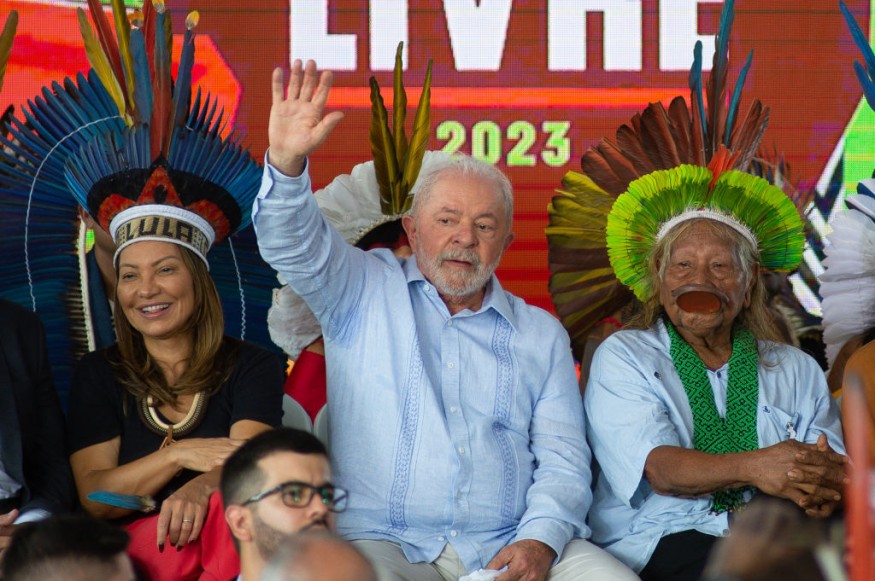Brazil Congress Overturns President Lula da Silva's Veto on Bill on Indigenous Peoples' Land Rights

Brazil Congress made a significant move on Thursday by overturning President Luiz Inacio Lula da Silva's veto on a bill that aimed to restrict Indigenous land claims, according to Reuters.
The contentious decision is anticipated to lead to a legal showdown at the Supreme Court, with Indigenous groups and the influential farm lobby standing on opposing sides.
In a joint session of both chambers, lawmakers voted overwhelmingly to annul President Lula's veto, which rejected a policy limiting claims to ancestral lands where Indigenous people resided in 1988.
This sets the stage for a potential clash at the Supreme Court, which previously ruled in September that the deadline imposed by the bill was unconstitutional.
President Lula, who established the first Ministry of Indigenous Peoples earlier this year, had initially vetoed the core of the bill in October.
This move was hailed as a victory for Brazil's 1.6 million Indigenous people, many of whom face threats to their land rights due to the encroachment of the agricultural frontier into the Amazon region.
Lula da Silva Vetoes Bill, Protecting Indigenous Rights
Brazil's first Indigenous People Minister, Sonia Guajajara, appointed by President Lula da Silva, hailed the veto as a significant victory for the country's Indigenous people population, per The NRI Nations.
She emphasized the importance of safeguarding Indigenous rights through the veto.
Minister Guajajara pointed out the rising number of land conflicts, a consequence of Brazil's rapidly expanding agriculture.
Indigenous communities across the country have been claiming land settled and developed by farmers, leading to prolonged conflicts.
The core of the contested bill aimed to establish a legal cut-off for new reservations on lands that Indigenous people did not inhabit by October 5, 1988, the date Brazil's Constitution was enacted.
While the agribusiness caucus in Brazil Congress vowed to continue their efforts to overturn Lula's veto, Minister Guajajara cautioned that such actions would undermine the ancestral land rights of Indigenous people and jeopardize their way of life.
The ongoing debate reflects the broader tension between agricultural interests and Indigenous rights in Brazil, a battle that now seems destined for the highest court in the land.
Lula da Silva's Veto Overturned
The override of President Lula's veto marked a triumph for congressional supporters of former President Jair Bolsonaro, who, along with members of Lula's coalition, voted to reverse the president's action, AP reports.
The powerful agribusiness lobby also supported the bill, contending that it was necessary to provide legal security to landowners.
Supporters argued that Indigenous leaders were advocating for an unlimited expansion of their territories, while Indigenous rights groups countered that the concept of the deadline was unjust.
They highlighted the failure of the deadline to consider expulsions and forced displacements of Indigenous populations, especially during Brazil's 1964-1985 military dictatorship.
The Articulation of Indigenous Peoples of Brazil (Apib) announced its intention to take the case to Brazil's Supreme Court, and leftist lawmakers expressed similar sentiments.
"The defeated are those who are not fighting. Congress approved the deadline bill and other crimes against Indigenous peoples. We will continue to challenge this," Apib said.
Following the congressional vote, approximately 300 people gathered in front of the Supreme Court building to protest.
This article is owned by Latin Post.
Written by: Bert Hoover
WATCH: Brazilian Amazon Leader Urges Lula to Prosecute Bolsonaro for Genocide Against Indigenous Yamomami - From Democracy Now!
Subscribe to Latin Post!
Sign up for our free newsletter for the Latest coverage!

















